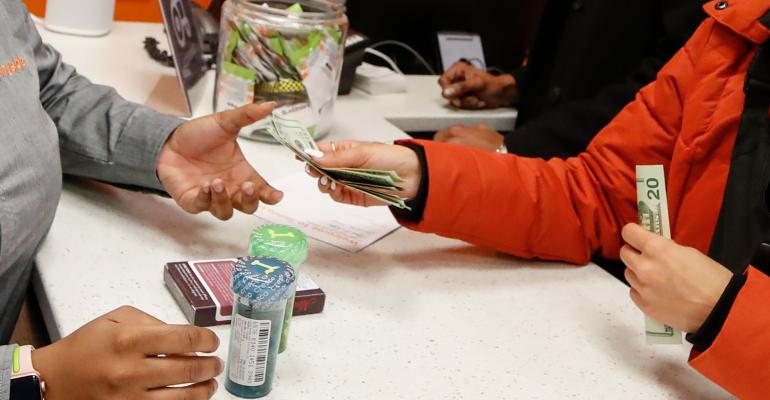(Bloomberg)—Legislation to open banking services to marijuana businesses has become a casualty — at least for now — of the financial turmoil brought on by the collapse of Silicon Valley Bank and Signature Bank.
Senate Banking Chairman Sherrod Brown is postponing hearings on the bipartisan SAFE Banking Act so his panel can focus instead on the congressional response to the bank failures.
“I want to do SAFE Banking,” Brown said, adding that he had discussed the issue with Majority Leader Chuck Schumer. “But this is clearly more important.”
“It doesn’t mean long-term delay, but it means delays a couple weeks.”
The decision by Brown, an Ohio Democrat, is the latest setback for advocates of the bill, which would prohibit federal banking regulators from penalizing banks and other depository institutions for providing banking services to cannabis businesses.
House Financial Services Chairman Patrick McHenry, a key ally of Kevin McCarthy who helped him secure enough Republican votes to become speaker in January, opposes the bill. McCarthy voted for the SAFE Banking Act during the last session, but it is unclear whether he will support it in this Congress.
McHenry, a North Carolina Republican, recently told Bloomberg TV’s Balance of Power that the legislation is a “lame half measure.” If Congress wants to address the issues with marijuana, McHenry said, lawmakers should focus on studying federal legalization rather than using the banking system to “cure societal ills.”
A total of 21 states and the District of Columbia have legalized cannabis for adult use, according to the Marijuana Policy Project, and 37 states and the District have legalized medical cannabis.
But marijuana still remains a prohibited substance under the federal Controlled Substances Act and banks are concerned about running afoul of the law or facing financial risks, even in states where the drug has been legalalized.
The current patchwork of state laws creates a gray area on how to handle cannabis transactions. Big banks won’t touch the industry, so cannabis businesses have turned to state-chartered banks and credit unions, which charge the businesses servicing fees and offer higher interest rates on loans.
The industry has also turned to “Cashless ATMs” to process customer transactions — although with questionable legality.
Still, most businesses rely heavily on cash, making them a target for crime.
In Washington State, there were 70 robberies at cannabis stores during the first six months of 2022, said Chandra Wax, director of the Washington State Liquor and Cannabis Board Enforcement and Education Division. In California, 329 licensed cannabis operations experienced theft in 2022, more than double the previous year, according to the state’s Department of Cannabis Control.
Adam Simon, owner of the Reef dispensaries in the Seattle area, hired a company to provide full-time armed guards at a monthly cost of $5,000 per store. The Reef has also given the staff security training and created a new security role with higher pay.
“Our employees were really concerned about showing up at work,” he said. “And we really had to think about at what point would we just not want to put our employees at risk like that?”
In San Francisco, California Street Cannabis Co. was burglarized in January. Security video shows the thieves hit the safe, before targeting the automated teller machine and stealing merchandise.
Duncan Ley, a co-owner, said he pays $1,000 a month to hold a checking account with a credit union. Ley also pays fees on the ATM machines in the dispensaries since he can’t accept credit cards.
Congress, he said, has “made it a political thing and they’ve politicized the industry.”
The House passed the bill last year under Democratic control, but it wasn’t brought to the Senate floor. Schumer instead introduced his own comprehensive legalization measure alongside Senators Cory Booker of New Jersey and Ron Wyden of Oregon.
Lawmakers attempted to strike a compromise by incorporating restorative justice provisions, like expunging criminal records, into the SAFE Banking Act. But that failed among GOP opposition in the Senate.
--With assistance from Tiffany Kary.
© 2023 Bloomberg L.P.





